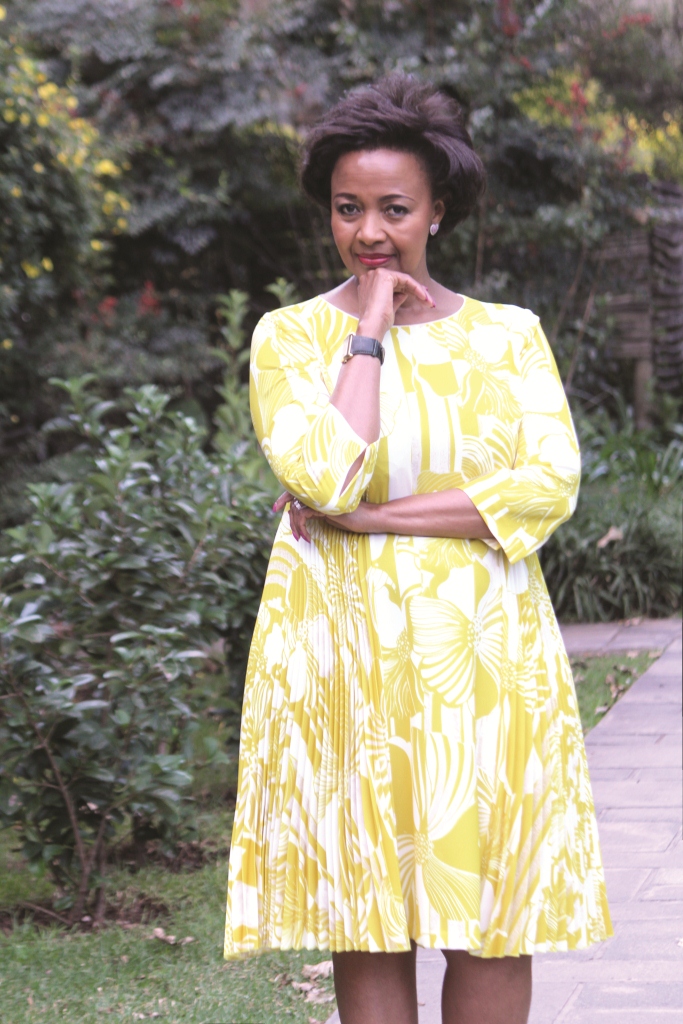South African entrepreneur Wendy Luhabe has 26 years of experience in the boardrooms of a variety of businesses. She is now adding the unlikely sport of rugby to that list.
In July, Luhabe started her stint as the first female director of the World Rugby board. Her seat on this board is surprising as rugby is a largely white male-dominated sport in South Africa.
“I’m not a rugby fan, surprise, surprise. But I’m a patriot. Over the years, I’ve watched all the Springboks’ World Cup games, but not because I’m a sports fan. Most women don’t have the luxury of watching sport because we tend to have much more important things to do,” she says. “[Like] making a home, looking after children. It’s time consuming.”
In addition to being a wife and mother, Luhabe is also the Chair and Founder of the Women Private Equity Fund and has held governance roles with Vodacom, the Industrial Development Corporation (IDC), the International Marketing Council (IMC) and the Johannesburg Stock Exchange (JSE).
She was selected among 60 candidates from all over the world to help reform World Rugby, the international governing body of the sport. Luhabe was appointed alongside Mervin Davies, a former Welsh international rugby player and prominent businessman, as independent directors on the World Rugby board. Luhabe’s lack of experience in the oval-balled sport doesn’t bother her.
“We’re living in times where good governance is critical in any institution, not just sport… I think it’s more important to have business people because we are the ones that have the most governance experience than other sectors.”
Part of this governance is making the sport more popular in Africa.
“Rugby is not as well-known, or as well-entrenched, in the rest of the continent and that needs to be part of the agenda. It’s a continent of almost a billion people and there is no reason why we shouldn’t look at a strategy to make rugby as prevalent as soccer is around the continent.”
Luhabe says the sport is ideally suited to the natural athletic ability of Africans.
“Especially with Sevens [the shortened version of the game that rewards skill and pace]. I think that the African continent has a huge growth potential for rugby,” she says.
Despite rugby being one of the most brutal sports on earth, Luhabe wants to get more women playing.
“That’s where the future growth of rugby is, as surprising as it is that women play rugby.”
What about those that think rugby’s scrumming, tackling and mauling is too physical for women?
“I think that women must make the choices that they want to make; I don’t think that society should continue to make choices for women. I think that’s what’s remarkable about women playing rugby, as surprising as it is, it’s a choice they exercised and society must respect that. The women that were courageous enough to be the first to play, they are the trailblazers. In another 20 years, it will be normal.”
Being the first woman on the board of World Rugby makes Luhabe a trailblazer as well. She is part of a new group of women wrestling control of sports from the old men that have ruled for generations. In May, Senegal’s Fatma Samoura became the first female Secretary General at Fifa, football’s embattled governing body. Suddenly, sports bodies are trying very hard to get women involved.
“I suspect that they are looking for people that have the courage to challenge the status quo. In my experience, having served on male-dominated boards, you don’t find that among males. It’s only when you bring a woman into the board that the conversation changes and different questions are raised. I sense that they are really quite committed to the reforms they have agreed to and therefore they need to bring in an element that is really going to transform the leadership structures of these old and historic institutions.”
Samoura’s appointment was a surprise to many and some inside Fifa questioned her selection.
“I doubt that she would have come as far as she has if she had paid attention to those criticisms. I think women like her, and many others who break ground, women who believe in their capability and who are not as concerned about the criticism that other people have, because criticism is generally a reflection of a shift in society. When people are uncomfortable, they use criticism as a blunt instrument. I think women like her, and women like myself, are not concerned about criticism.”
Luhabe, the Founder of the Wendy Luhabe Foundation, is known for her philanthropy. Her social work will now extend to rugby.
“Sport in general has the capacity to build bridges, we saw during South Africa’s World Cup how Madiba changed our relationship with rugby, and again with the movie Invictus. We must use sport therefore to overcome social inequalities, and to level the unequal playing field and access to opportunities.”
In South Africa, rugby is criticized for its lack of transformation.
“It needs a commitment and an openness to bring in new voices and diverse people on their leadership structures. I’m not close to the dynamics of South African rugby to really know what the issues are. In the same way that World Rugby was comfortable to bring in a black woman, who has no knowledge of rugby, into their board, South African rugby needs the same openness.”
South African rugby could do with someone like Luhabe on its board – it’s unlikely to happen though.
“I think once you’ve played on the global stage, you don’t really go back, do you?”
A tough stance from a tough woman who is not going to be ruffled by any patriarchal system that rugby might have.
